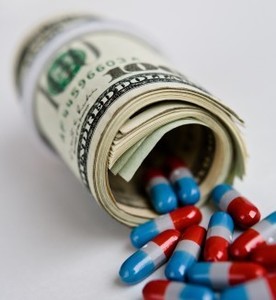Japanese pharmaceutical company Eisai announced on 28 December 2015 that it had acquired Chinese generics maker Liaoning TianYi Biological Pharmaceutical.
Eisai acquires Chinese generics maker
Home/Pharma News
|
Posted 22/01/2016
 0
Post your comment
0
Post your comment

The acquisition marks a move by Eisai into the Chinese generics market, and also strengthens the company’s presence in China, where it has been doing business for over 25 years. The acquisition, says Eisai, will enable the company ‘to fulfill an even wider range of medical needs in China’ and to provide ‘a stable supply of high quality generic pharmaceuticals’.
The trading name of Liaoning TianYi Biological Pharmaceutical has been changed to Eisai (Liaoning) Pharmaceutical (Eisai Liaoning) and the company has become a wholly-owned subsidiary of Eisai China Holdings.
Eisai Liaoning manufactures and markets both generics and active pharmaceutical ingredients, and has manufacturing approval for approximately 90 pharmaceutical products covering a wide range of diseases, including immune modulators, traditional Chinese medicines and treatments for inflammation and pain relief, dementia, gastritis, intestinal disorders, diabetes as well as chronic arterial occlusion. In addition, Eisai Liaoning possesses the latest production line and technology that is compliant with China’s Good Manufacturing Practice (GMP) standards to enable the handling of various different formulations, such as tablets, capsules, granules, liquid medicines, and freeze-dried injectables.
The Chinese pharmaceutical market is the second largest in the world after the US. Despite China experiencing a slowdown in economic growth, the Chinese pharmaceutical market is still forecasted to maintain strong growth due to the rapidly ageing population and the government’s policies to improve access to medicines. China’s healthcare reform of 2009 aims to offer affordable medical care to more than 90% of its residents by the end of 2011 and to the entire population by 2020 [1].
Related articles
China’s SFDA to fast-track high-priority generics
China follows the Thai and Indian route to affordable drugs
Reference
1. GaBI Online - Generics and Biosimilars Initiative. China’s Healthcare reform in 2010 [www.gabionline.net]. Mol, Belgium: Pro Pharma Communications International; [cited 2016 Jan 22]. Available from: www.gabionline.net/Policies-Legislation/China-s-healthcare-reform-in-2010
Permission granted to reproduce for personal and non-commercial use only. All other reproduction, copy or reprinting of all or part of any ‘Content’ found on this website is strictly prohibited without the prior consent of the publisher. Contact the publisher to obtain permission before redistributing.
Copyright – Unless otherwise stated all contents of this website are © 2016 Pro Pharma Communications International. All Rights Reserved.
Source: Eisai
Guidelines
US guidance to remove biosimilar comparative efficacy studies
New guidance for biologicals in Pakistan and Hong Kong’s independent drug regulatory authority
Policies & Legislation
China updates regulations to encourage research and innovation and improved drug safety
Brazil and Mexico forge alliance to streamline medical approvals and boost production
Formycon signs new aflibercept biosimilar pacts and launches ranivisio in Europe

Home/Pharma News Posted 13/11/2025
The best selling biotechnology drugs of 2008: the next biosimilars targets









Post your comment